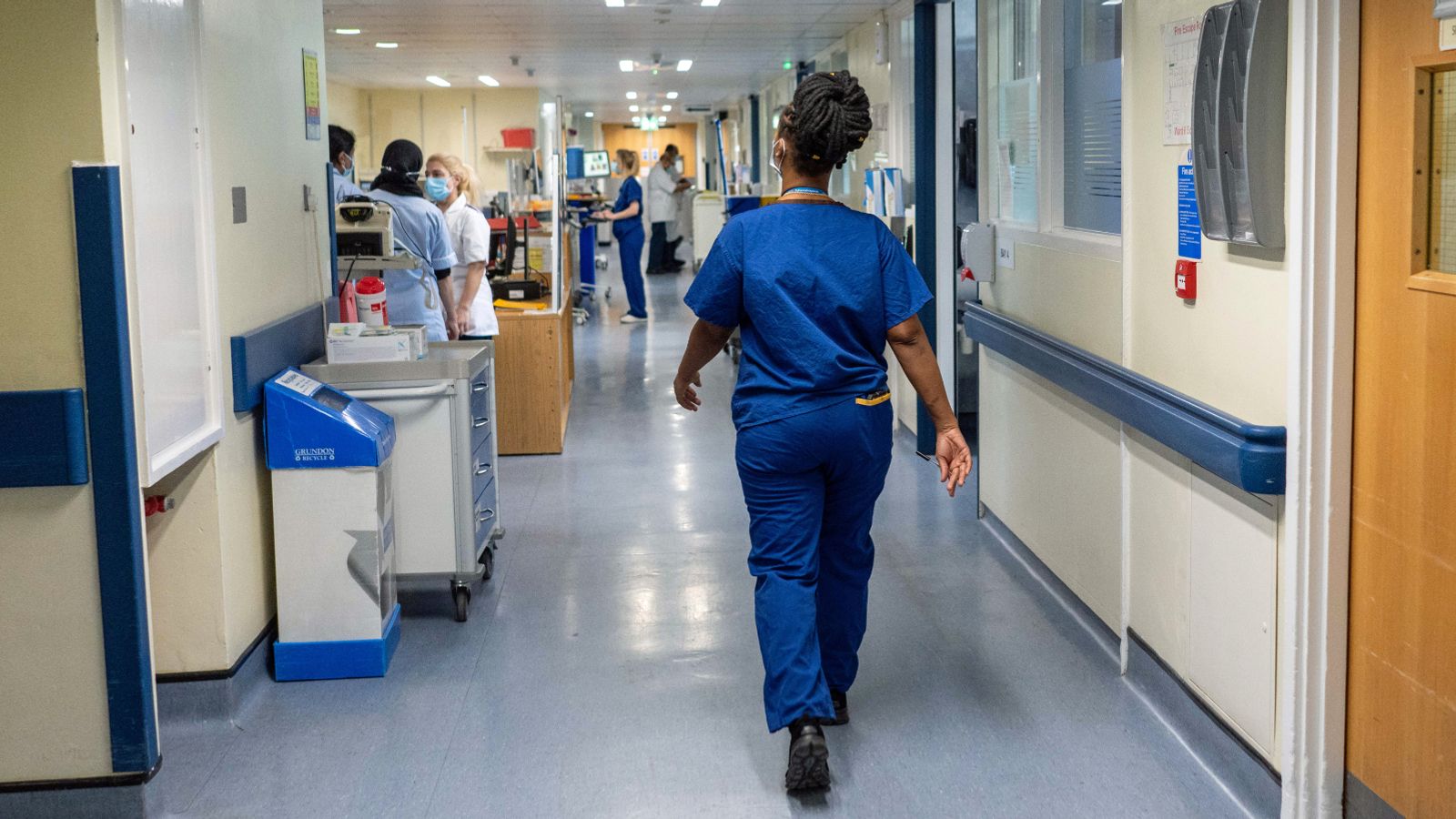Surgeons have carried out simultaneous caesarean sections and ovary removal operations on women at high risk of developing cancer – in what could be a world first.
The procedures were performed between March 2018 and March 2022 on four patients with inherited faulty genes. As a result, they have not needed to have separate surgeries to remove their fallopian tubes and ovaries.
Professor Adam Rosenthal from University College London Hospital (UCL), who performed the operations, said he was not aware of similar surgery ever being carried out before in other countries.
The women all had inherited changes in their BRCA1 or BRCA2 genes, according to a report from UCL published in the Journal of Obstetrics and Gynaecology.
Figures suggest 55% to 72% of women who inherit a harmful BRCA1 variant, and 45% to 69% of women with an unfavourable BRCA2 variant, will develop breast cancer later in life.
Those with a faulty BRCA1 gene also have a 39% to 44% risk of developing ovarian cancer.
“Ovarian cancer is the most lethal gynaecologic malignancy and continues to have a poor prognosis, largely attributable to late-stage at presentation,” the report said.
“Identifying individuals with a genetic predisposition and performing risk-reducing bilateral salpingo-oophorectomy [removal of the ovaries and fallopian tubes] offers a significant opportunity for ovarian cancer prevention and mortality reduction.”
Read more:
Cervical cancer treatment breakthrough could cut deaths by 35%
Most people can’t identify lesser-known breast cancer symptoms – study
Prof Rosenthal said getting the surgeries done at the same time reduced the risk to a patient from having two separate operations.
He told BBC Radio 4’s Today programme the procedures were carried out primarily to address the women’s risk of developing ovarian cancer, rather than breast cancer.
Be the first to get Breaking News
Install the Sky News app for free
Please use Chrome browser for a more accessible video player
He added: “I’m sure we’ll be getting more requests for it, but I think it’s important to remember that women are getting older when they have children now.
“The older you are, the more appropriate it is to have your ovaries removed because your risk of ovarian cancer, if you’ve got one of these genes, increases with age.
“There’s also an increasing rate of caesarean section. So we anticipate that, over time, more women will be eligible for this kind of procedure.”








